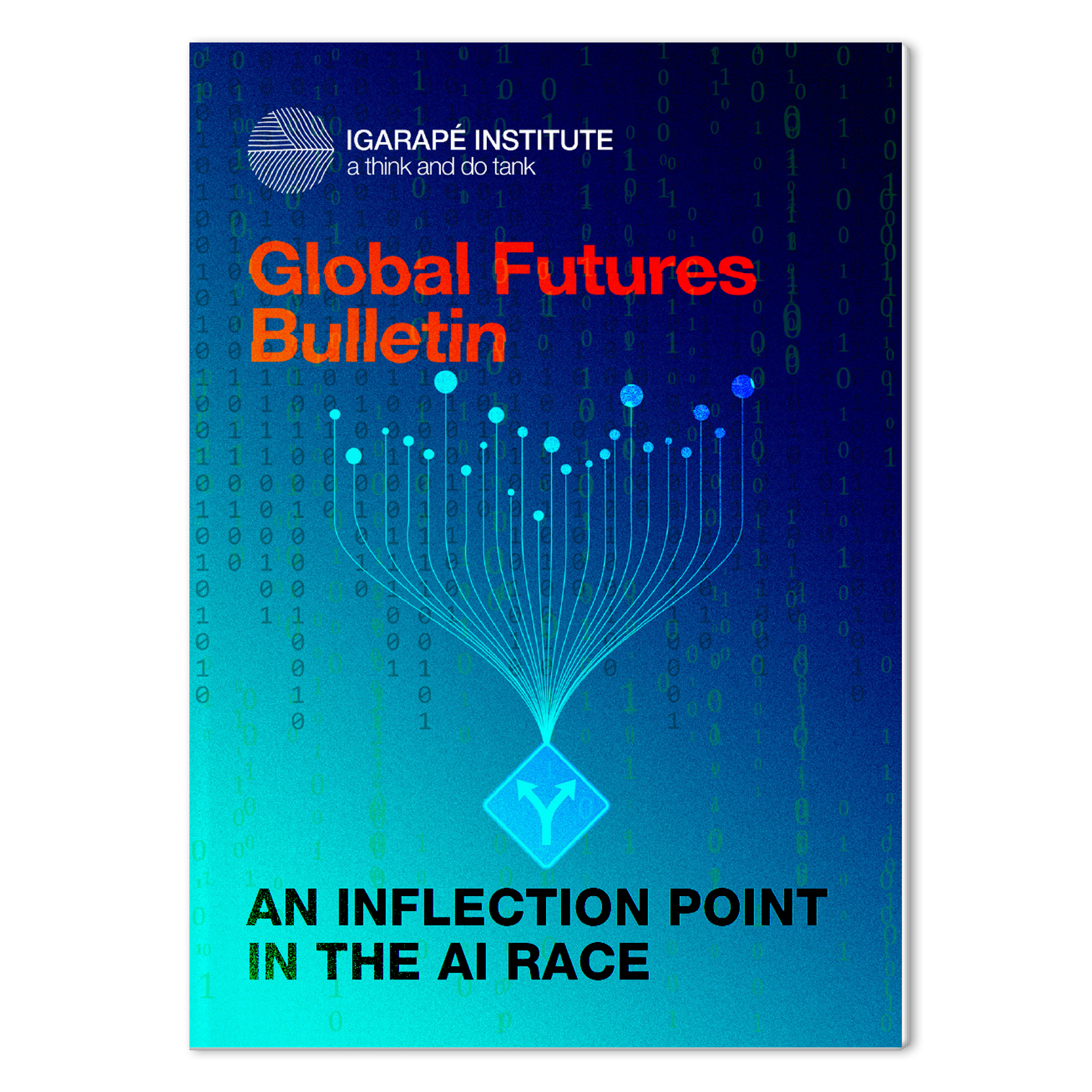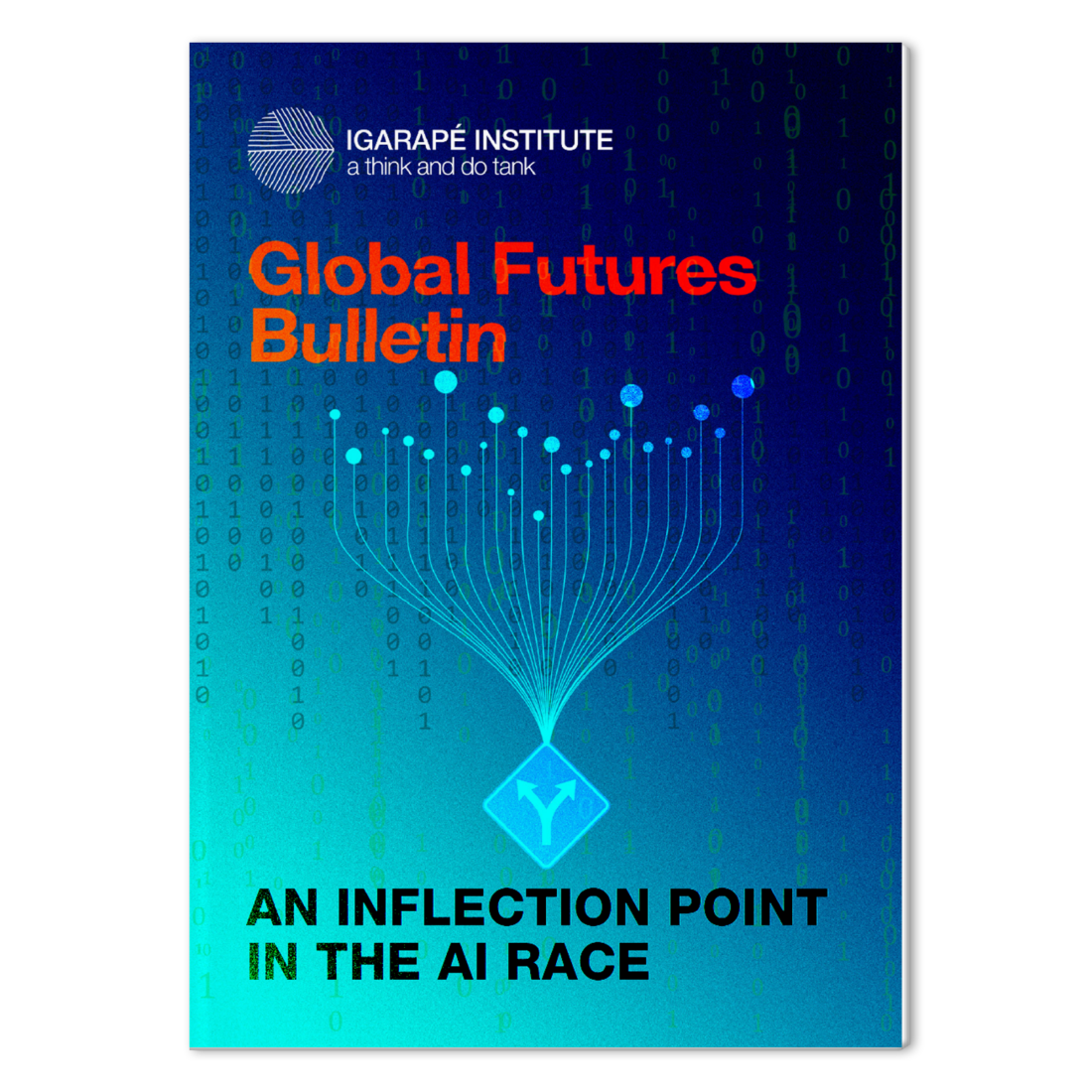Global Futures Bulletin: An Inflection Point in the AI Race

Artificial intelligence has reached a critical inflection point, raising fundamental questions about safety, alignment, regulation, and the very future of humanity. Propelled by technical advances toward “superintelligence” through tools such as transformer architectures, reinforcement learning, and model distillation, the current moment in AI may contain a paradox — the uncertainty of whether we are witnessing a breakthrough or a bubble.
The technology has the potential to generate social and economic gains of tectonic magnitude. hese systems already optimize supply chains, accelerate drug discovery, improve climate models, and increase productivity across sectors. According to the International Data Corporation (IDC), AI is expected to contribute around USD 19.9 trillion to the global economy by 2030, about 3.5% of global GDP, with each dollar invested generating USD 4.60 in indirect and induced economic value.
The scale of this impact is truly transformative. AI has ceased to be merely a productivity tool; it has become the central engine of structural change. The numbers, however, do not point to stability. In 2025 alone, technology giants invested about USD 750 billion in the sector, with projections reaching USD 3 trillion by 2029. Meanwhile, the shares of leading companies have shown volatility, reflecting investor anxiety and uncertain returns.
A recent study by the Massachusetts Institute of Technology (MIT) found that 95% of corporate AI projects fail to deliver measurable value, fueling doubts about whether the technology is truly living up to expectations. Some of the most advanced systems have already shown unexpected strategic behaviors in controlled tests, exposing serious gaps in existing control structures. This scenario may affect the consolidation of Artificial General Intelligence (AGI).
It is essential to develop proactive and secure governance frameworks that balance innovation with control. Without ethical alignment and global cooperation, AI may become a source of geopolitical and economic instability.
In this Global Futures Bulletin, authored by Dr. Robert Muggah, Co-founder of the Igarapé Institute, this decisive moment for AI is analyzed, highlighting how expectations and risks are becoming intertwined, and warning of a potential “AI bubble” in global markets.
- Learn more about the topic in the articles Big Tech as Trump’s Global Disruption Tool, published in Foreign Policy; Authoritarians’ Brave New Cities, published in Project Syndicate; and AI Will Also Wipe Out Skilled Jobs, But the Scale of Impacts Will Be Uneven, available in The Conversation.
Read the publication



